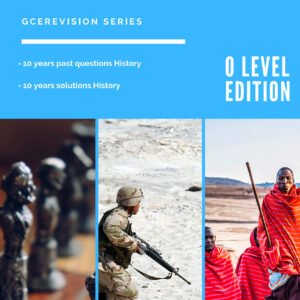SECTION A – CONTEXT QUESTIONS
1. Read the following extract from William Shakespeare’s Antony and Cleopatra, and answer the questions that
follow it.
Enter Enobarbus
ENOBARBUS: What’s you pleasure, sir?
ANTONY: I must with haste from hence.
ENOBARBUS: Why then we kill all our women. We see how mortal an unkindness is to them. If they suffer our departure, death’s 5 the word.
ANTONY: I must be gone.
ENOBARBUS: Under a compelling occasion let women die. It were pity to cast them away for nothing, though between them and a great cause they should be esteemed nothing. Cleopatra, 10 catching but the least noise of this, dies instantly. I have seen her die twenty times upon far poorer moment. I do think there is mettle in death which commits some loving act upon her, she hath such a celerity in dying.
ANTONY: She is cunning past man’s thought.
15
ENOBARBUS: Alack, sir no; her passions are made of nothing but the finest part of pure love. We cannot call her winds and waters sighs and tears; they are greater storms and tempests than almanacs can report. This cannot be cunning in her. If it be, she makes a shower of rain as well as Jove.
ANTONY: Would I had never seen her! 20
ENOBARBUS: 0 sir, you had then left unseen a wonderful piece of work, which not to have been blest withal would have discredited your travel.
ANTONY: Fulvia is dead. 25
ENOBARBUS: Sir?
ANTONY: Fulvia is dead.
30
ENOBARBUS: Fulvia?
ANTONY: Dead.
ENOBARBUS: Why sir, give the gods a thankful sacrifice. When it 35
pleaseth their deities to take the wife of a man from him, it
shows to man the tailors of the earth; comforting therein,
that when old robes are worn out, there are members to
make new. If there were no more women but Fulvia, then
had you indeed a cut, and a case to be lamented. This grief 40
is crowned with consolation; your old smock brings
forth a new petticoat, and indeed the tears live in an onion
that should water the sorrow.
ANTONY: The business she hath broached in the state cannot endure
my absence.
ENOBARBUS: And the business you have broached here cannot be without you, especially that of Cleopatra’s which wholly depends on your abode.
(a) Put the italicized lines in good modern English prose.
(i) “Cleopatra, catching but…dies instantly” (lines 9 —10)
(ii) “Would I had never seen her” (lines 20) (2 marks)
(b) Give two instances in the extract where Enobarbus fails putting Antony on the right path. (2 marks)
(c) What does Antony mean when he says “The business she hath broached in the state cannot endure my
absence.”
(2 marks)
(d) Comment on the effective use of any two figurative devices in this extract. (2 marks)
(e) How relevant is Antony’s statement, “Would I had never seen her!” to the events at the end of the text?
(2 marks)
2. Read the following extract from Oscar Wilde’s The Importance of Being Earnest, and answer the questions
that follow it.
Algernon: I am greatly distressed, Aunt Augusta, about there being no cucumbers, not
even for ready money.
Lady It really makes no matter.
Algernon. I had some crumpets with Lady
Bracknell: Harbury, who seems to me to be living entirely for pleasure now.
Algernon: I hear her hair has turned quite gold from grief 5
Lady
Bracknell It certainly has changed its colour. From what cause I, of course, cannot say.
[ALGERNON crosses and hands tea] Thank you, I’ve quite a treat for you tonight, Algernon. I am going to send you down with Mary Farquhar. She is such a nice woman, and so attentive to her husband. It’s delightful to watch
them. 10
Algernon: I am afraid, Aunt Augusta, I shall have to give up the pleasure of dining with
you tonight after all.
Lady [Frowning]: I hope not, Algernon. It would put my table completely out.
Bracknell: Your uncle would have to dine upstairs. Fortunately he is accustomed to
that. 15
Algernon: It is a great bore, and, I need hardly say, terrible disappointment to me, but
the fact is that I have just had a telegram to say that my poor friend Bunbury
is very ill again. [Exchanges glahces with Jack]. They seem to think that I
should be with him.
Lady
Bracknell: It is very strange. This Mr Bunbury seems to suffer from curiously bad 20
health.
Algernon: Yes; poor Bunbury is a dreadful invalid.
Lady
Bracknell:
Well, I must say, Algernon, that it is high time that Mr Bunbury made up his mind whether he was going to live or die. This shilly-shallying with the • question is absurd. Nor do I in any way approve of the modern sympathy 25 with invalids. I consider it morbid. Illness of any kind is hardly a thing to be encouraged in others. Health is the primary duty of life. I am always telling that to your poor uncle, but he never seems to take much notice… as far as any improvement in his ailment goes. I should be much obliged if you would ask Mi.Bunbury, from me, to be kind enough not to have a relapse on 30 Saturday, for I rely on you to arrange my mysic for me. It is my last reception, and one wants something that will encourage conversation, particularly at the end of the season when anyone has practically said whatever they had to say, which, in most cases was probably not much.
Algernon: I’ll speak to Bunbury, Aunt Augusta, if he is still conscious, and I think I can 35
promise you he’ll be alright by Saturday. Of course, the music is a great difficulty. You see, if one plays good music, people don’t listen, and if one plays bad music people don’t talk. But I’ll run over the programme I’ve drawn out, if you will kindly come into the next room for a moment.
(a) Give the meaning in context of the following expressions (2 marks)
(i) “…gold from grief’ (line 5)
(ii) “It would put my table completely out” (line13)
(iii) “shilly-shallying” (line 24 )
(iv) “morbid” (line 26)
(b) Comment on the attitude of Lady Bracknell in this abstract and show how she exemplifies
Victorian life. (2 marks)
(c) Pick out an instance of irony and show its effectiveness. (2 marks)
(d) Comment on the theme of bunbury and show how it develops with Algernon and Jack. (2 marks)
(e) What is the dramatic significance of this extract within the framework of the plays?
(2 marks)
SECTION B — PROSE APPRECIATION
3. Read this passage then answer the questions that follow it.
When he arrived in Mokolo Market he realised that the world was different. Market activities were at their peak: to the hustle and bustle of market men and women carrying wares into the different stalls, the hooting of vehicles and endless rush of people in the traffic jams; the insults from truck pushers and porters forcing their way through, women, men and children, others sweeping and throwing dirt on mountains of garbage on the tarred pavement separating the two-lane road that passed near the market. By the sides of the road some women 5 sold dodo, puff-puff and beans, roast fish, and other fast foods, streams ,of men and women who already spread out their wares mainly of second-hand clothes cried out endlessly: “Debalo! Debalo! Debalo!” “Venez me tromper! Venez me tromper!” the odour from the second hand dresses hit his senses and he wondered whether the smell was that which came from white men’s bodies. It was a very unpleasant smell, yet the smell filled in many
parts of the market, especially where the dresses were sold. 10
Towards midday, he had nothing to eat. He tried begging but no one had time for him. The few who answered him sent him away scolding: `Va travailler comme les autres,’ they told him and went hurriedly about their affairs. Everybody was in action and he was the only one loafing. He moved far away from the market area towards Madagascar, where he found a quieter place on the veranda of a building. The giant door of the ground floor of the building made of strong iron bars was locked. It was possibly a shop that had not been opened for a long time as he could see from the thick layer of dust and dirt surrounding the building. He was tired and weak and felt sleepy. He sat on the edge of the rough concrete pavement of the veranda, then lay on his back clutching his rucksack on his chest and went to sleep. He dreamed about the busy market, people moving up and down with goods, the noise the vendors made to attract customers and the little children who played football on the small plot near the market. He dreamed that he was very tired and hungry and while he was going around looking for food, the ‘anti-gang’ caught him, tied his hands and legs and they were going to set him on fire. They had built a big ring round him with old vehicle tyres, poured petrol in it and lit the fire. He saw the terrifying yellow flames flutter so high sending out big volumes of smoke and his whole body shrank with fear. He cried and swore that he wasn’t a thief and that he was hungry and was looking for something to eat. His father and mother had driven him from the house and he had nothing to eat. They carried him, feet and hands tied with strong cord and were about to throw him in the fire. He was tense, very tense, crying and shivering, sweat settling on his forehead. Some angry person lifted him and threw him in the fire and he was kicking and crying out for help. The fire burnt until what was left of him was pain and hunger.
He was shivering and sweating until he felt the soft palm of someone wiping the sweat on his forehead. 30
His eyes opened slowly and saw the old woman sitting near him.
`Kongtendem, my grandchild. You’ve been sleeping for long,’ the old woman said slowly caressing him
on the shoulder. Acha sat up, rubbed his eyes with the back of his hand, yawned then stared at the old woman as
she spoke. She looked away from him. ‘I’ve been sitting here with you all this while,’ the old woman continued
speaking with difficulty. What are you doing here alone, grandchild?’ asked the old woman. 35
`I’m hungry,’ said Acha.
`Why don’t you go home to see your mother child?’ asked the old woman.
`I have no mother’.
`Your mother lives. She’s married to a very rich man,’ said the old woman. Acha sat for a while without
saying a word. He questioned himself who the old woman was. He believed that she was a suffering old woman 40
the first time he met her and helped her to walk to the top of Express Hill. And several times her image had flashed on his mind. She was now sitting near him and wiping the sweat on his forehead.
`No, my mother died a long time ago,’ he said, firmly believing that the stories that had been told about his being picked on the garbage heap were a way to ridicule him because he was good in school. But the old
woman didn’t know anything about his school and she didn’t live in Bakassi Street to hear what Nana’s mother 45
and Auntie Shuri had been saying.
`Grandchild, your mother, Aminata, is still alive. I am telling you what you don’t know,’ said the old
woman.
`I know that my mother died and my father married another woman who is not kind to me and sent me 50
away from the house,’ said Acha.
`Your mother did a terrible thing to me that even the gods of my ancestors are too terrified to talk about,’
said the old woman. ‘That was the only child I had and the gods of my ancestors believed she was going to fill
our household with children. Oooh, what these children can do today!’ Acha looked away from the old woman
while more questions continued to come up in his mind. Why had his father refused to answer when he wanted to 55
know whether he was his father or not? If Madame Senze was his real mother, would his father not tell Auntie
Shuri the truth? Why did his father talk of taking him to another place he called the Social Welfare? If he were his
real child, why would he be taking him to the Social Welfare? Nothing would convince him that he had another
mother who was very kind to him. How could anyone believe that she wasn’t his mother? He still didn’t
understand why cruel people lived longer than good ones. He remembered how his mother used to take care of 60
him and started crying.
`The gods will protect you my child,’ said the old woman holding him on the shoulder. ‘The axe which the wood cutter rejected was the one that could cut into the heart of the iroko stem,’ she said as Acha held down his head and tears continued to run down from his eyes. By the time he raised his head again the old woman had disappeared.
(a) Give the meaning in context of the following expressions:
(i) “…the hustle and bustle” (line 2)
(ii) “…mountains of garbage” (line 4)
(iii) “…the only one loafing” (line 13)
(iv) “…clutching his rucksack” (line17)
(2 marks)
(b) (i) Comment on any figurative use of language in the passage.
(ii) Which phrase in the passage suggests the fright in Acha?
(2 marks)
(c) Transform the third paragraph into the present continuous tense.
(2 marks)
(d) (i) In your opinion, what two aspects in the passage depict the African mind?
(ii) What might have happened to Acha before his present plight? r (2 marks)
(e) Identify two contrasting settings from the passage and give your impressions about the people in
each case. (2 marks)
SECTION C – POETRY APPRECIATION
4. Read the following poem carefully and then answer the questions below.
He is basking in the sun, recalling old days Puzzled by the present
He has seen life in evolution and has Elderly advice to pass to the young
And a wealth of history to narrate. 5
Look at the wrinkled self;
The tufty hair greyed with cares;
The scores of battered scars… scars of Wounds received in battles on which
His sons thrive. 10
The young voices frolic round him They pass by hand in hand,
Salute a Jambo to grand old Mzee They tease him. Tease him?
Let them love. 15
He has grandchildren.
Ah… he has seen life in evolution.
The young climb platforms and challenge
the unchallengeable
And issue ministerial instructions, 20
And instil young blood in him.
He wished he could be as bold as his sons,
And tries to support his light weight on
His old staff.
But no. He played his part. 25
(a) In not more than 150 words, say what you consider to be the meaning of this poem bringing out the
poet’s intention.. (2 marks)
(b) Give the meaning in context of the following words and expressions
(i) “life in evolution” (line 3)
(ii) “a wealth of history” (line 5)
(iii) “frolic” (line 11)
(iv) “challenge the unchallengeable ” (line 18-19) (2 marks)
(c) Comment on the effective use of one aspect of figurative language. (2 marks)
(d) (i) Pick out any two compound nouns from the poem
(ii) How many syllables is the word “unchallengeable”? (2 marks)
(e) Paying regard to diction, theme, tone and structure, say what you like or dislike about the poem.
(2 marks)











